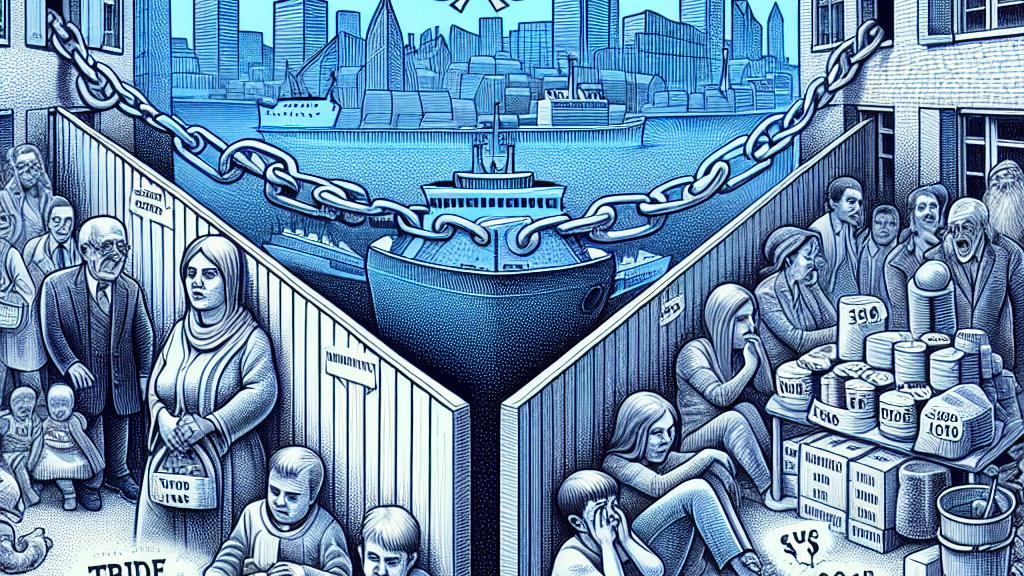Tariffs: The Silent Strugglers of the Poor Unveiled!
Overview
- WTO studies reveal how tariffs disproportionately burden those with limited incomes.
- Protectionist policies inflate costs, pushing essential goods beyond reach.
- A comprehensive approach is critical to close economic divides.

The Hidden Burden of Tariffs
In Brussels, Belgium, the European epicenter of trade policy, the World Trade Organization (WTO) recently exposed a painful truth: import tariffs often unjustly weigh heavier on low-income households. Imagine a struggling family; their tight budget already fraying at the edges faces additional strain as prices for everyday necessities climb. This scenario paints a realistic picture, illustrating that while tariffs are intended to protect domestic industries, they inadvertently deepen the wounds of economic inequality. Picture tariffs as invisible chains, restraining low-income families from accessing basic goods without financial sacrifice, highlighting the stark contrast between the privileged and the underprivileged in society.
The Spiral of Protectionism
Now, let’s delve into the implications of recent U.S. tariff proposals targeting various imports, such as electric vehicles from China. Although lawmakers herald these tariffs as tools to shield American jobs, the reality often proves disastrous for those struggling financially. Costs rise, and, suddenly, grocery bills swell as the price of fundamental items surges. For families already living paycheck to paycheck, this is more than just a financial inconvenience; it’s akin to adding stones to a backpack that is already too heavy. Protectionism, instead of acting as a guardian, becomes a double-edged sword, preventing purchases and altering lifestyles in ways that are all too painful to bear.
A Call for Holistic Solutions
Against this backdrop of economic strain, the WTO urges nations to recognize that trade alone will not mend economic disparities. Like a verdant garden that needs rich soil and ample sunlight, our economies depend on a synergy of open trade coupled with supportive domestic policies. Initiatives such as accessible education and workforce training can nurture skill development, empowering individuals to navigate a rapidly changing job market. This strategy gives a fighting chance to those once left behind by globalization. Ultimately, integrating trade policies with comprehensive social frameworks is not only necessary—it's an imperative to foster genuine progress and elevate lives. To reshape our economic landscape, we must advocate for a robust approach, uniting all citizens in the quest for an inclusive and equitable future.

Loading...